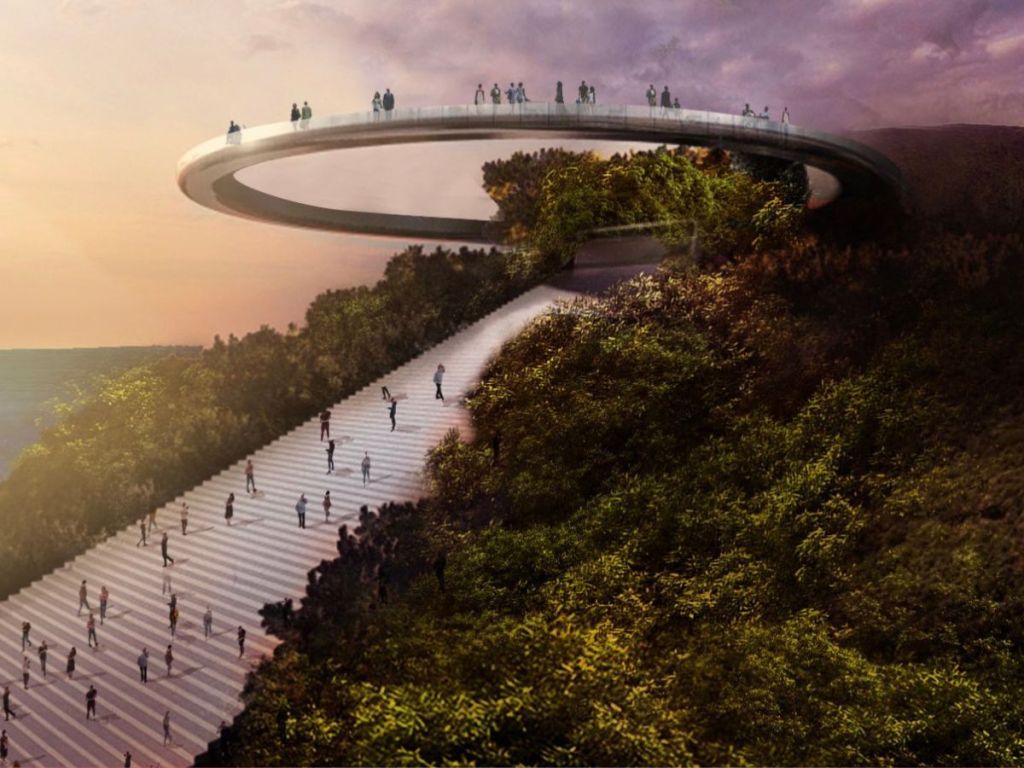Bitcoin City just bagged itself an architectural award for its ground-breaking design. But what is Bitcoin City? And will it help El Salvador rise out of poverty? According to president Nayib Bukele, it most certainly will.
El Salvador is not a place that people would usually think of when it comes to technological innovation and daring architectural projects. The tiny Central American country of just 6.34 million people is one of the least prosperous in its region.
And yet, one of the most intriguing projects of this century is in the works in this part of the world. It is a mind-boggling and fascinating attempt to lift El Salvador out of the poverty cycle using technological innovation combined with cryptocurrency.
What is Bitcoin City?
If El Salvador’s president Nayib Bukele has anything to do with it, Bitcoin City will be built very soon. If this rebel president pulls it off, and the city injects life into the economy, it will be a beacon of hope for other impoverished nations. Bitcoin City will place El Salvador on the map for both tourists and business travellers from across the globe.
Bitcoin City will be powered by clean energy from two nearby volcanoes, named Tecapa and Conchagua. The concept is to create an eco-friendly and metropolitan playground using cutting-edge practices not only in urban planning, but in finance.
The project has garnered attention globally, as it represents the first major example of a city being built specifically to take advantage of the growth of Bitcoin and the ‘parallel economy’ that cryptocurrencies are creating.
The design of this new city is being led by Mexico-based design firm Fernando Romero, who recently earned an award from Costa Rican sustainable architecture studio, LOOP. Out of 705 submissions from 56 countries, Bitcoin City was chosen as the winner, which has the concept back in the news yet again.
Nayib Bukele and his pet project
Bitcoin City is a pet project of El Salvador’s president Nayib Bukele. It is a perfect example of his rebellion against conventional wisdom, his love of technology, and his hope to lift El Salvador from financial destitution.
Bukele says in a tweet, “Bitcoin City is coming along nicely… And no, the city won’t be made up of golden metal; that is just the architect’s choice of color for the scale model. The actual city will be mostly green (trees) and blue (sea).”
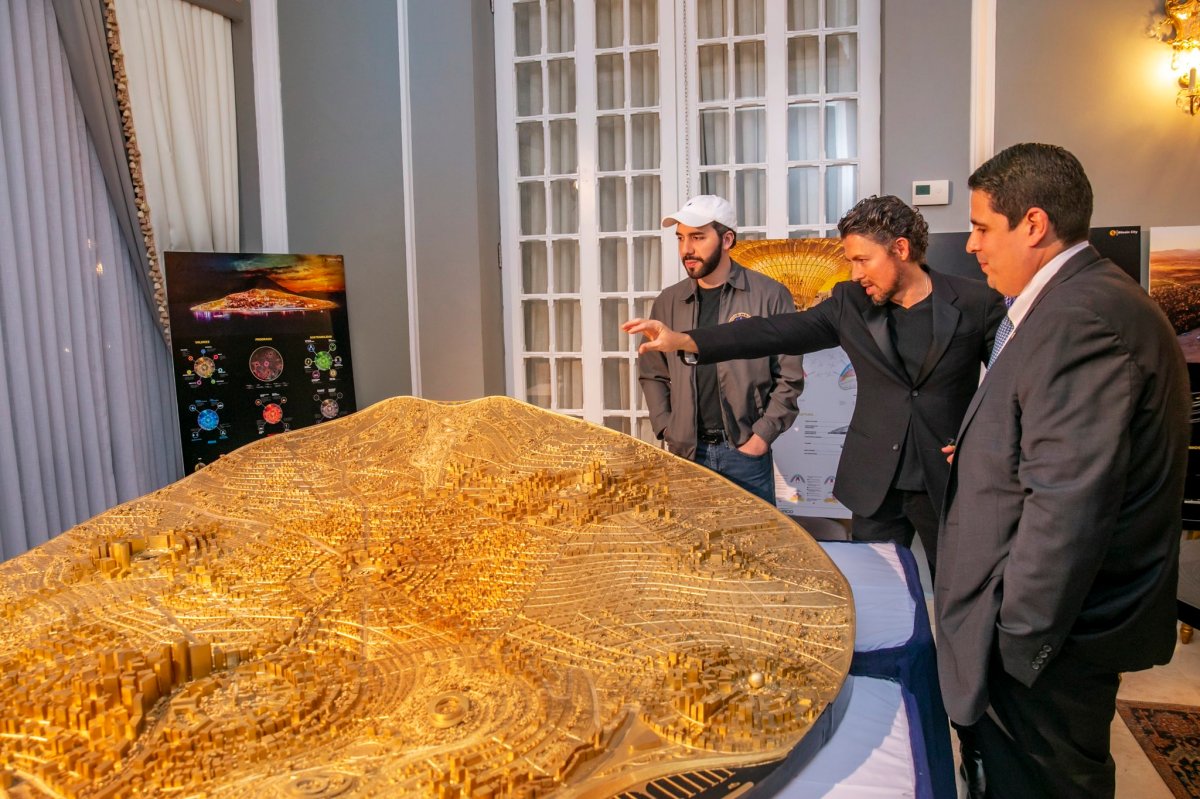
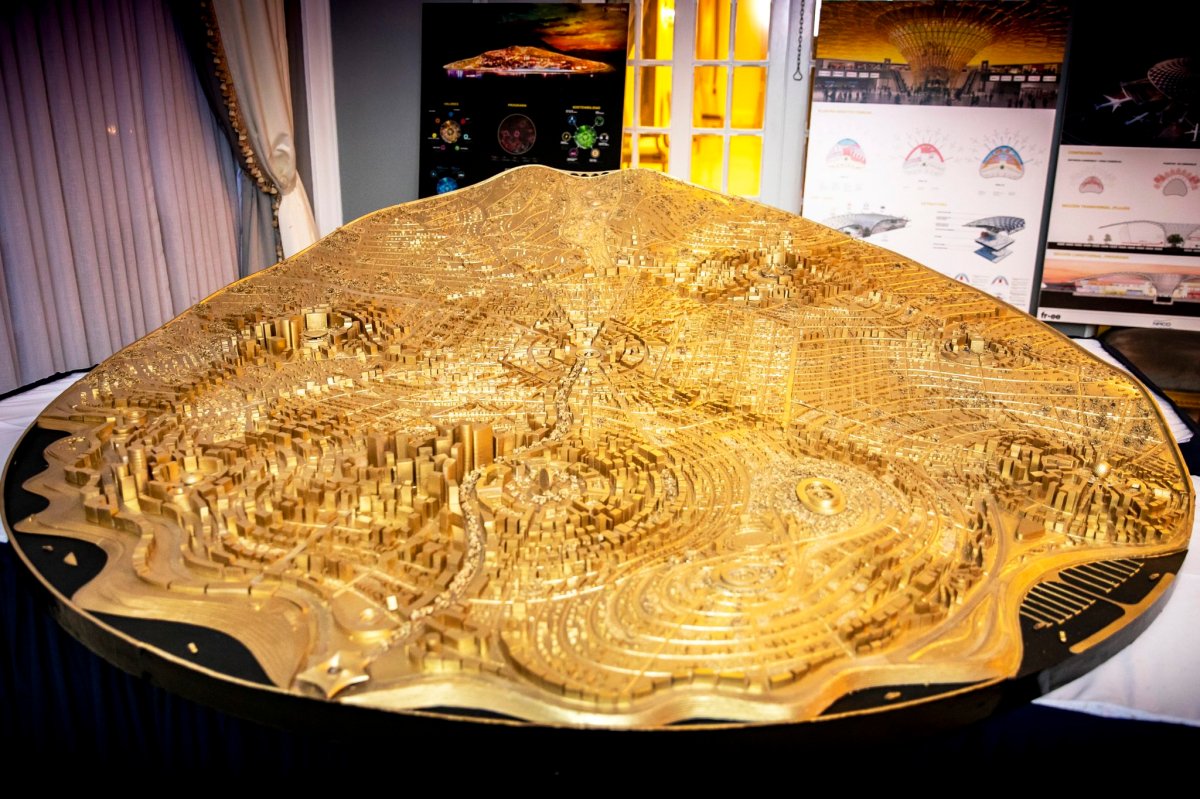
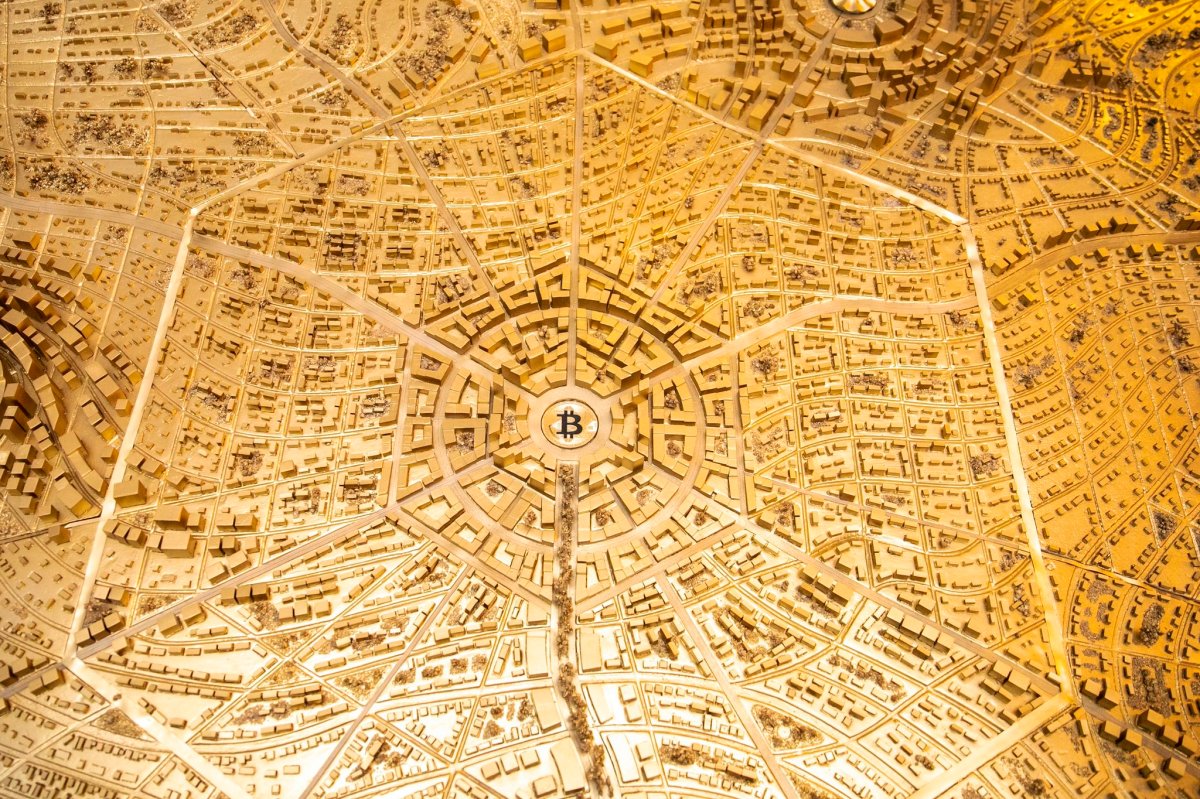
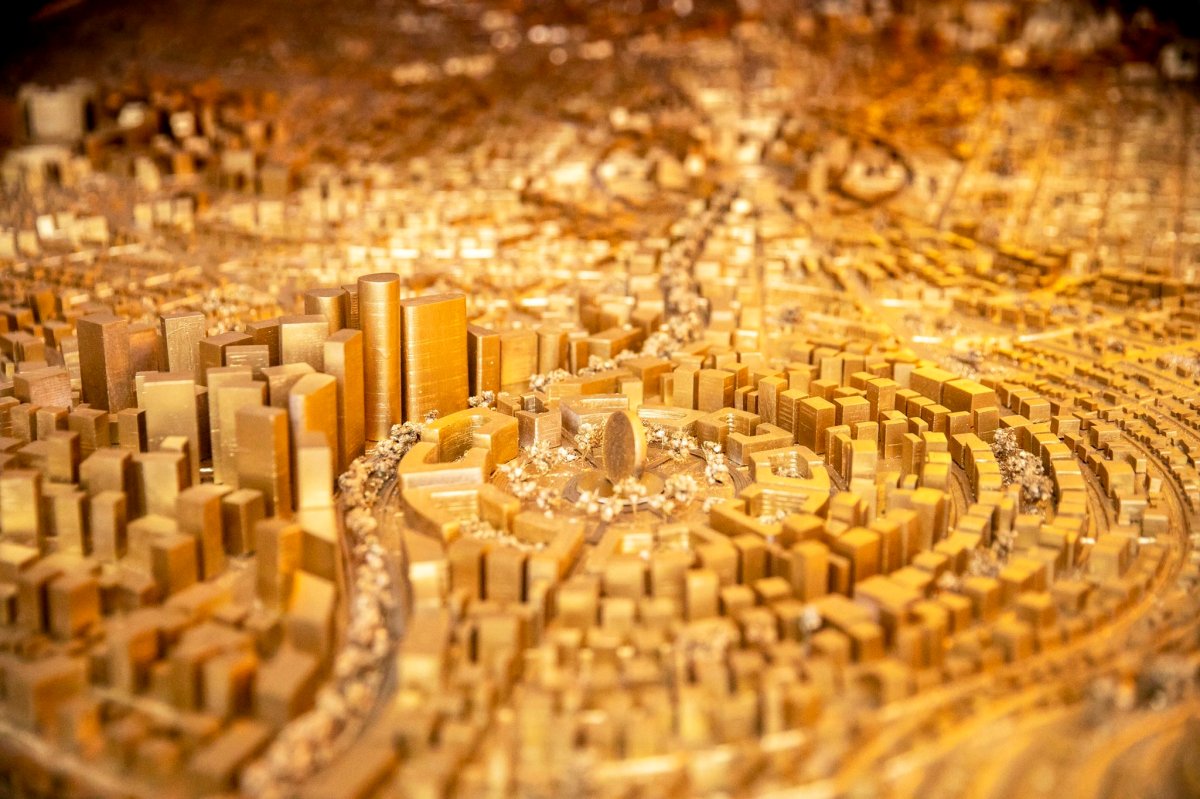

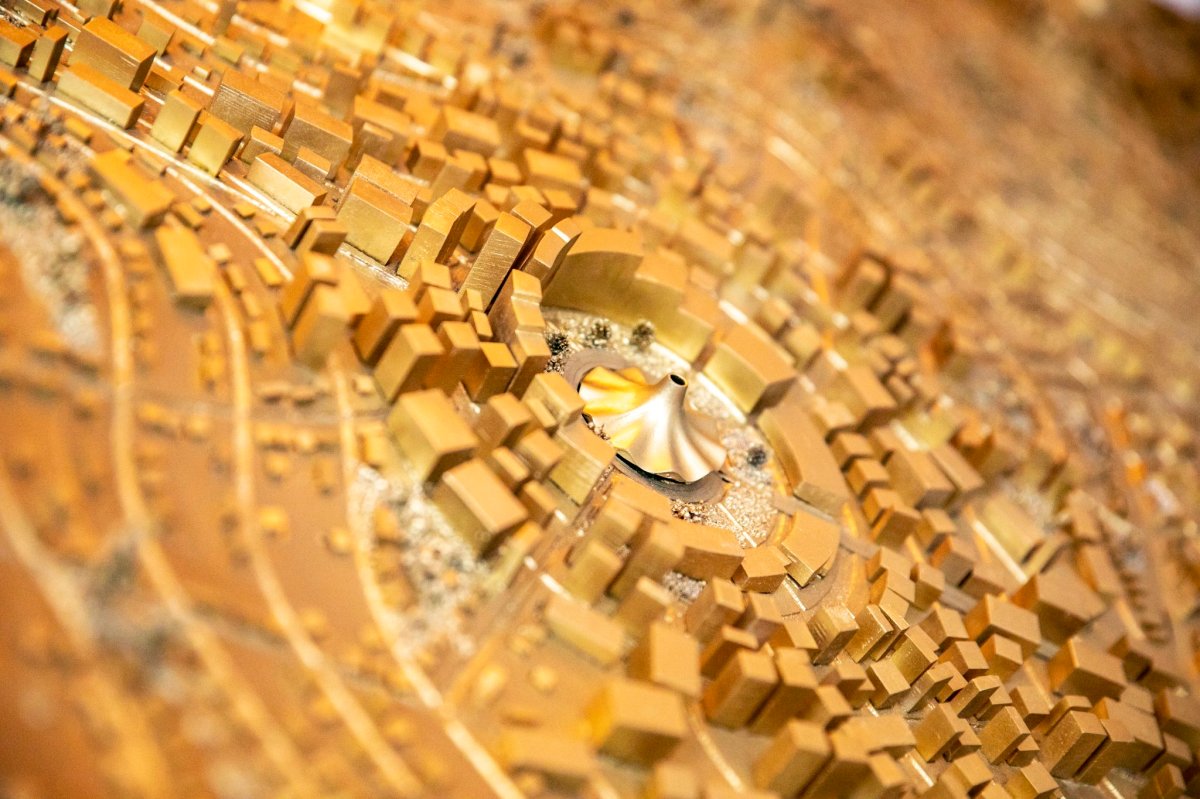

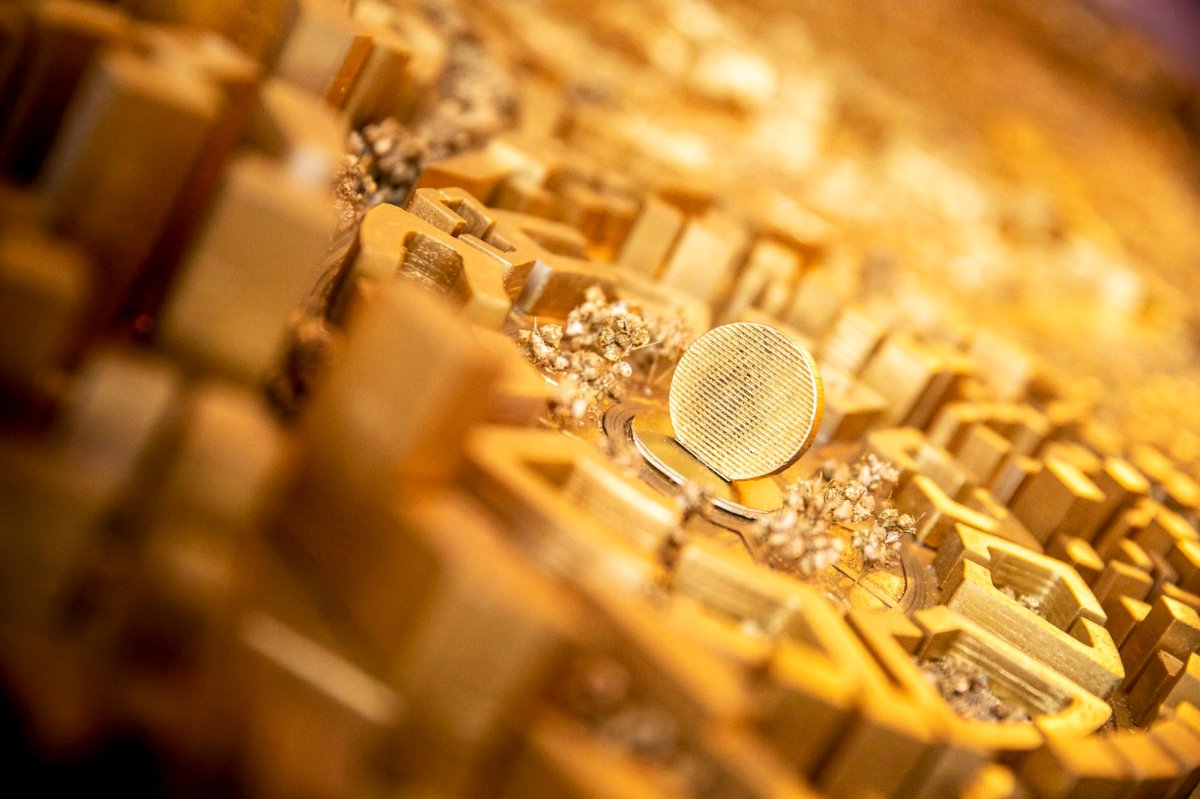
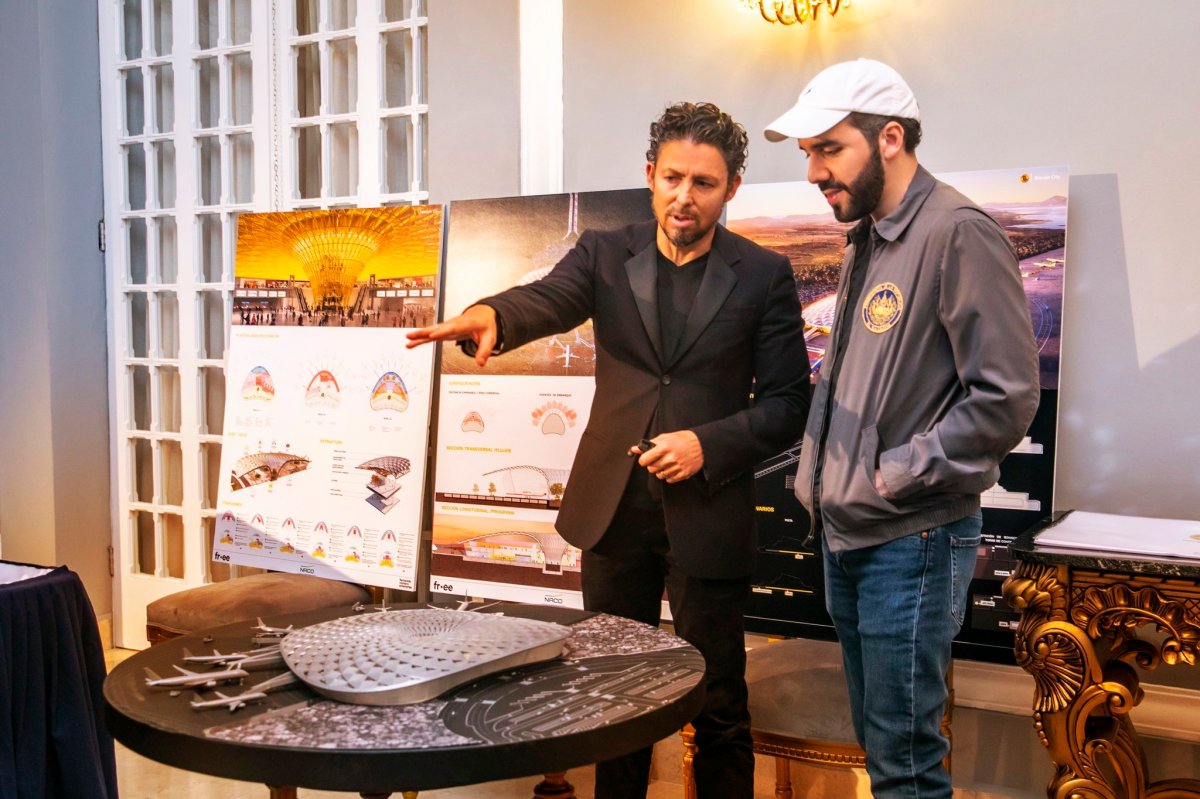

According to Loop, Bitcoin City will have a new airport and a sea port, and it will be the most ambitious regional development undertaken by El Salvador.
“This new city will mark a new moment of our civilisation. It will be urban planning with an environmental conscience due to Bitcoin City generating its’ own energy from the volcano located at the perimeter. This will show a new humanitarian city plan. The city will become a catalyst for investment by local and foreign businesses, who will become principal players in this new cycle of contemporary living.”
They also say that the citizen will be the central focus in the design of Bitcoin City. “Their mobility will be clean and their way of working comfortable. The new public space will be the culmination of decades of research on what humans need to live well in an anti-inflationary economy.”

El Salvador and Bitcoin
On September 9th, 2021, President Bukele signed a bill into law that officially made Bitcoin a legal tender currency in the country, alongside the US dollar. This made El Salvador the first country in the world to adopt Bitcoin as a legal tender currency.
So why has Bukele pushed so hard for this new financial innovation in this tiny country? For all intents and purposes, he is trying to find the shortest route to get the country out of poverty.
Around 70% of people in El Salvador are ‘unbanked’, meaning they do not have access to traditional banking services. They are literally too impoverished, can’t prove their address, or are too isolated geographically to use banking systems.
However, using cryptocurrency, the only thing citizens need to be connected to the world economy is a phone. From here, they can download one of the many cryptocurrency wallets available, or use El Salvador’s State-owned and run ‘Chivo Wallet’.
The Chivo Wallet is a cryptocurrency wallet developed by the government of El Salvador. It is designed to make it easier for people in El Salvador to use Bitcoin for everyday transactions. Users can also convert Bitcoin into US dollars.
By using Bitcoin, people who were previously excluded from the financial system can now potentially participate in the global economy.
Remittances
For example, if Salvadorians go abroad to work, and send money home to family (called remittances), the companies that they use to transfer the money take huge fees for enabling the transaction. They are taking funds from some of the world’s poorest people.
Such ‘remittances’ from abroad are an incredibly important for El Salvador’s economy. They account for around 26% of El Salvador’s GDP.
However, if the money transfer is done using cryptocurrency infrastructure, the Salvadorian who receives the money will lose just a fraction of the cost, rather than a larger portion. There are other advantages to using cryptocurrencies — the transfer is almost instant, as opposed to days via traditional methods using banks or other money exchange companies.
Could Bitcoin save El Salvador’s Economy?
Helping El Salvadorians enter the world economy is not the only reason that Bukele is going hard on the Bitcoin angle. He also believes that the adoption of Bitcoin would help to attract investment to the country, create new jobs, and boost economic growth.
By making Bitcoin a legal tender, he aims to reduce the country’s dependence on the US dollar, and potentially minimise the impact of US economic dominance. El Salvador may be able to sidestep US-dominated financial systems and it might reduce its exposure to US monetary policy. This could give the small country greater control over its own financial system.
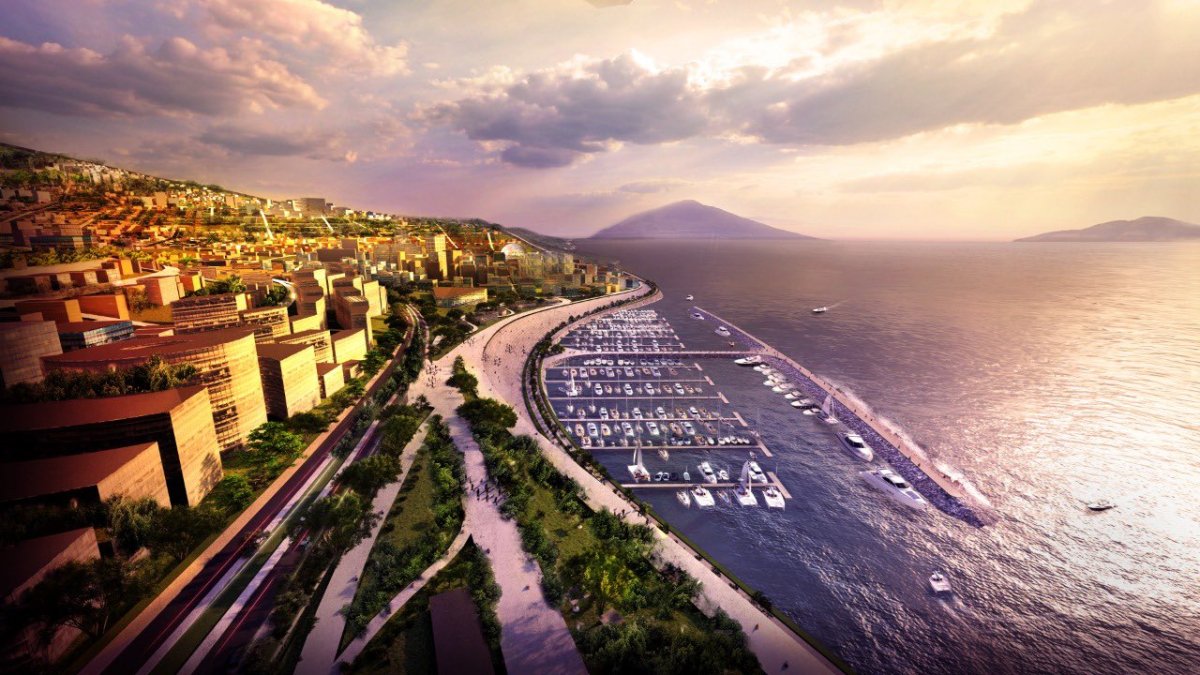

Bukele is so convinced of this, despite some very harsh criticism, that he has doubled down on his push for widespread Bitcoin use in his country. El Salvador is thought to own 2381 Bitcoins, and while the cryptocurrency has lost value since the country’s purchase of the coins due to a market downturn, Bukele has declared that he will be buying more on behalf of the country while the market dips.
It’s a very risky business, but he is the first president of El Salvador that has been willing to try a radical and innovative method to escape the poverty cycle.
If the market down goes down further, it could spell disaster for El Salvador, and it will set them back even further than before.
And yet, Bukele has a dream. If the market rises, and his plan pans out, he will be a hero of his people. Everyone will benefit from Bitcoin City, and the country will become a Latin Tiger, bringing prosperity.
Will Bitcoin City be the answer?
Crypto markets are known to be volatile. And many planned cities have failed in an expensive heap of shame and dead dreams. Is Bukele just a radical crazy person who is risking an entire country’s economy on a wild and unrealistic utopia?
So far, while facing strong opposition from both local and international media, Bukele is standing his ground. In terms of economic performance, El Salvador’s economy has improved somewhat since Bukele took office, with growth rates increasing and the country’s credit rating being upgraded. Poverty levels still remain high, however.
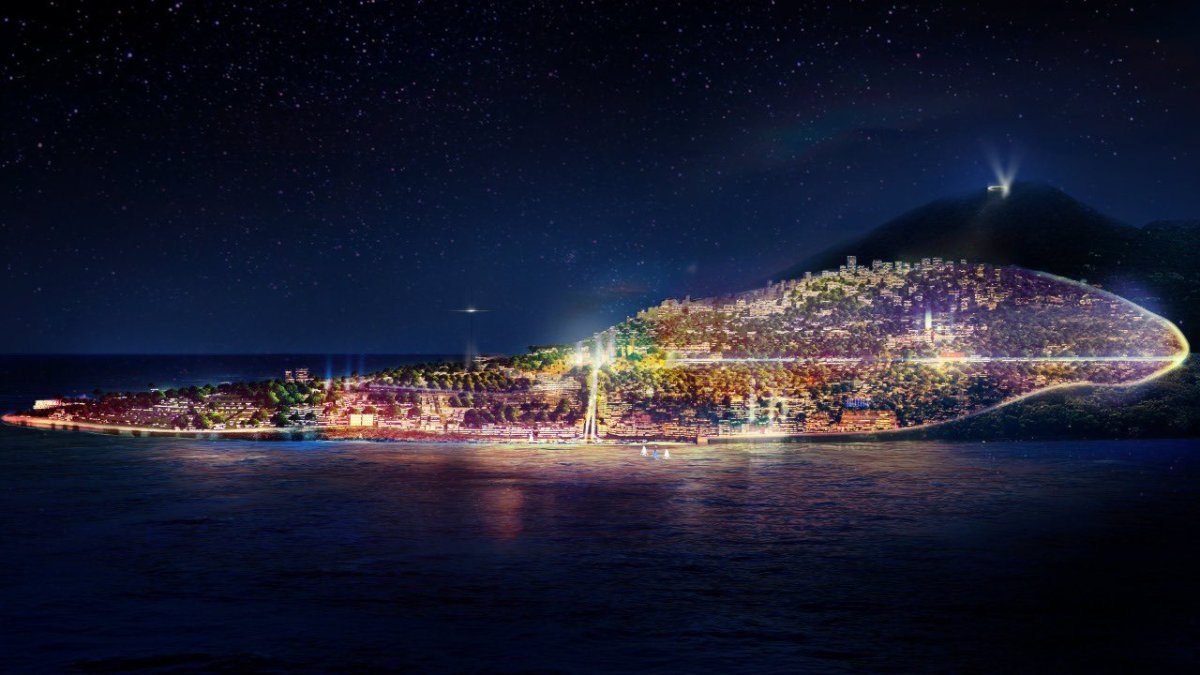
Who is Nayib Bukele?
President Bukele Nayib Bukele is a Salvadoran politician who became the President of El Salvador in June 2019. He was previously the Mayor of San Salvador, which is the capital city. Bukele got involved in politics young, and ran for mayor of San Salvador in 2015 and won by a large margin.
As Mayor of San Salvador, Bukele was known for being charismatic and media-savvy. He used social media to communicate with the public directly. He is anti-establishment and he loves taking on the political status quo.
Probably the most interesting thing about Nayib Bukele and his rise to the president role, is that he ditched the main two political parties to get there. He formed his own political party, called the New Ideas Party, defeating the two major parties that have dominated Salvadoran politics for decades.
Is Bukele’s Bitcoin City the salvation that El Salvador needs? Or will it end up as a ghost town in the list of failed projects that litter the world? Is this risk by Nayib Bukele a gamble too far?
The great hope is that the idea of Bitcoin City provides hope itself. If he pulls it off, it could be a win for both alternative ways to run countries and a hack to get people out of financial disadvantage.





